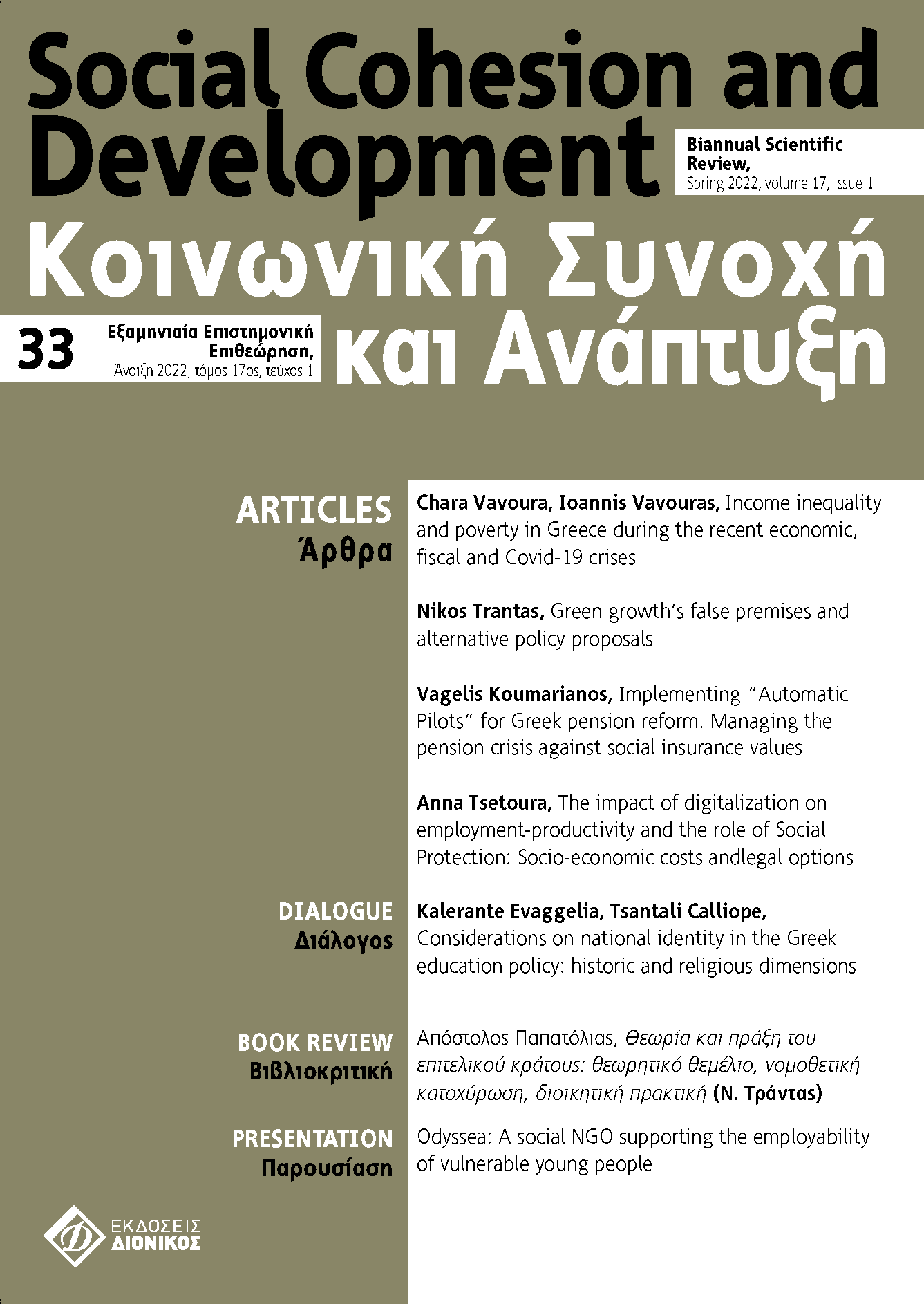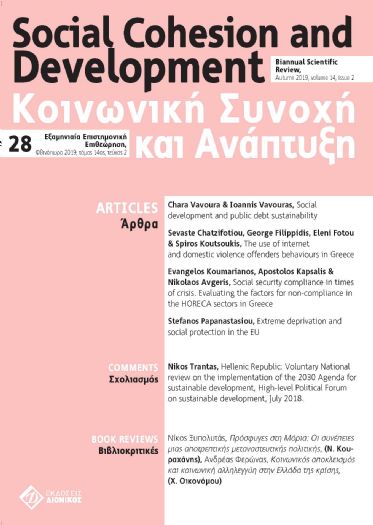Οι εσφαλμένες βάσεις της πράσινης ανάπτυξης και εναλλακτικές πολιτικές προτάσεις

Abstract
Η πράσινη ανάπτυξη αναγνωρίζει τα πιεστικά περι-
βαλλοντικά προβλήματα που απειλούν τον πλανή-
τη, αλλά διατηρεί μία αισιόδοξη οπτική αναφορικά
με τη σχέση οικονομικής ανάπτυξης και περιβαλ-
λοντικής προστασίας. Θεωρεί ότι η οικονομία μπο-
ρεί να συνεχίσει να αναπτύσσεται αρκεί να είναι
προσανατολισμένη στην εξεύρεση νέων επενδυ-
τικών ευκαιριών σε καινοτομίες και τεχνολογικές
εξελίξεις που οδηγούν στο «πρασίνισμα» της οι-
κονομίας. Αυτό υποτίθεται ότι θα οδηγήσει σε μία
σταδιακή αποσύζευξη της οικονομικής ανάπτυξης
από την χρήση των πόρων και τον περιβαλλοντικό
αντίκτυπο. Τα επιστημονικά δεδομένα εγείρουν
σοβαρές αιτιάσεις ως προς την υπόθεση της απο-
σύζευξης, και θεωρίες που στέκονται κριτικά απέ-
ναντι στην ανάπτυξη έχουν προτείνει εναλλακτικές
πολιτικές για την περιβαλλοντική και κοινωνική
βιωσιμότητα. Αυτές οι μη ορθόδοξες θεωρίες και
αναλύσεις φαίνεται να αποκτούν ευρύτερη αποδοχή τελευταία.
Article Details
- Zitationsvorschlag
-
Trantas, N. (2022). Οι εσφαλμένες βάσεις της πράσινης ανάπτυξης και εναλλακτικές πολιτικές προτάσεις. Social Cohesion and Development, 17(1), 23–35. https://doi.org/10.12681/scad.32226
- Ausgabe
- Bd. 17 Nr. 1 (2022): No 33
- Rubrik
- Articles

Dieses Werk steht unter der Lizenz Creative Commons Namensnennung - Nicht-kommerziell - Weitergabe unter gleichen Bedingungen 4.0 International.
Authors who publish with this journal agree to the following terms:
- Authors retain copyright and grant the journal right of first publication with the work simultaneously licensed under a Creative Commons Attribution Non-Commercial License that allows others to share the work with an acknowledgement of the work's authorship and initial publication in this journal.
- Authors are able to enter into separate, additional contractual arrangements for the non-exclusive distribution of the journal's published version of the work (e.g. post it to an institutional repository or publish it in a book), with an acknowledgement of its initial publication in this journal.
- Authors are permitted and encouraged to post their work online (preferably in institutional repositories or on their website) prior to and during the submission process, as it can lead to productive exchanges, as well as earlier and greater citation of published work (See The Effect of Open Access).



